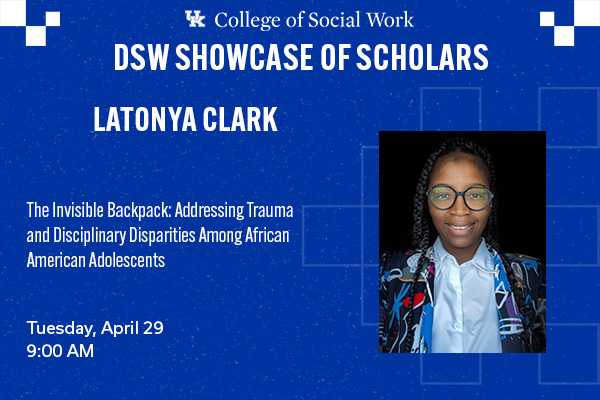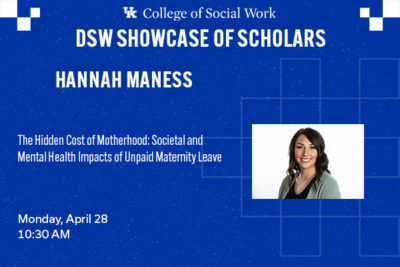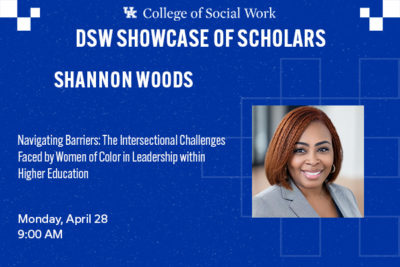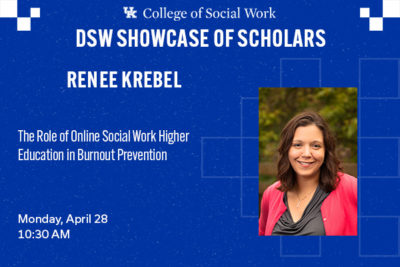DSW Candidate – Latonya Boyd-Clark, 9:00 AM – 10:15 AM
$0.00
Virtual Showcase of DSW Scholars 2025 Event!
The Invisible Backpack: Addressing Trauma and Disciplinary Disparities Among African American Adolescents
DSW Candidate – Latonya Clark, MSW, BSSW
Tuesday, April 29, 2025
9:00 AM- 10:15 AM Eastern Time Zone
Credit Hours: This session is not eligible for CE credit.
Description
The Invisible Backpack: Addressing Trauma and Disciplinary Disparities Among African American Adolescents
African American adolescents experience disproportionately high exposure to Adverse Childhood Experiences (ACEs), which significantly impact their behavioral patterns, academic achievement, and overall well-being. Despite this, the educational system continues to rely on punitive disciplinary practices that fail to address the root causes of student behavior, contributing to disparities in academic outcomes and school pushout rates. This presentation explores the concept of the Invisible Backpack—a collection of trauma, chronic stressors, and adversities that disproportionately impact African American students—and its influence on racial disparities in school disciplinary practices.
Grounded in research on trauma-informed care and culturally responsive pedagogy, this presentation explores the integration of Culturally Responsive School-Wide Positive Behavioral Interventions and Supports (CRSWPBIS) within a Trauma-Informed Care (TIC) framework. By merging these evidence-based approaches, educators and social workers can foster resilience, enhance student engagement, and reduce disciplinary disparities. By the end of this presentation, attendees will gain a deeper understanding of how trauma-informed, culturally responsive practices can create supportive learning environments that reduce disparities and promote equity. Through research-based insights and practical applications, educators and social workers will be equipped with tools to transform their classrooms and schools into spaces of healing and empowerment.
Learning Objectives:
Upon completion of this conference, participants will be able to:
- Identify the concept of invisible trauma and analyze its unique impact on African American adolescents in educational settings, demonstrating an understanding of its effects on academic achievement, behavior, and emotional well-being.
- Analyze the intersection of trauma, adverse childhood experiences (ACEs), and implicit bias in educational settings, evaluating their collective impact on African American adolescents’ academic and socio-emotional development.
- Evaluate the integration of Culturally Responsive School-Wide Positive Behavioral Interventions and Supports (CRSWPBIS) into Trauma-Informed Care (TIC) as a strategy for promoting equitable education and reducing disparities among African American students.
Delivery Method: Live Interactive Training via Zoom Video Conferencing
Credit Hours: This session is not eligible for CE credit.
Target Audience: This conference is intended for social workers and students.
Accreditation: University of Kentucky College of Social Work, Provider # 1377, is approved as an ACE provider to offer social work continuing education by the Association of Social Work Boards (ASWB) Approved Continuing Education (ACE) program. Regulatory boards are the final authority on courses accepted for continuing education credit. ACE provider approval period: 9/29/22-9/29/25. Social workers participating in this conference will receive up to 15 general continuing education credits.
Claiming CE Credit: Instructions for claiming CE credit will be disseminated at the beginning of each session.
Questions: If you have any questions regarding CE credit or to report a grievance, please contact Christina Krantz at Christina.Krantz@uky.edu. For technical assistance, please contact lmshelp@uky.edu.
Disclaimer: The views and opinions expressed in these presentations are those of the individual presenters and do not necessarily reflect the official policies or positions of the University of Kentucky or the College of Social Work. The inclusion of any topics, perspectives, or discussions is intended for academic engagement and does not constitute endorsement by the institution.



